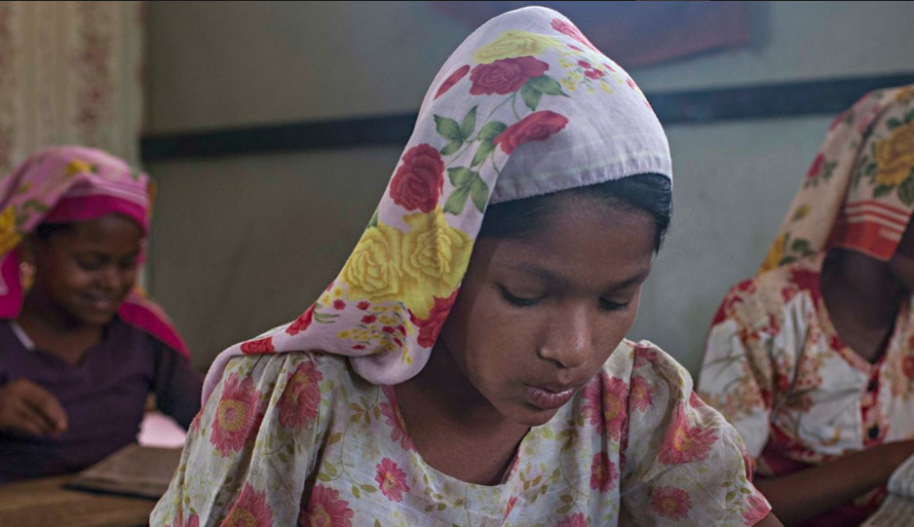Prime Minister Narendra Modi should use his official visit to Myanmar to urge authorities there to take urgent steps to protect civilians in violence-hit Rakhine State and lift restrictions on international humanitarian aid to Rakhine, Amnesty International India said today. Thousands of people, mainly Rohingya, are already suffering horrific abuses from a disproportionate military campaign in Rakhine.
“Prime Minister Modi needs to tell Myanmar’s leadership that they are not doing enough to protect all communities in the state, whether it is stopping military abuses targeting the Rohingya or restricting crucial humanitarian access for people in need,” said Aakar Patel, Executive Director at Amnesty International India.
“As a historic friend of Myanmar, India can play an important role in defusing tensions and saving civilian lives. Prime Minister Modi must urge the Myanmar authorities to address the long-standing and systematic discrimination against Rohingya and other Muslims in Rakhine State, which has left people trapped in a cycle of violence and deprivation.”
Violence broke out in Rakhine State after attacks on dozens of security posts by a Rohingya armed group on 25 August. The Myanmar military’s response to the attacks has been completely disproportionate, with reports of serious human rights violations emerging from the region.
“The Myanmar government has a duty to investigate the August attacks and bring those responsible to justice, however the attacks cannot be used as an excuse to give the military a blank cheque to commit atrocities against sections of the population. All sides must show the utmost restraint and ensure that ordinary people are protected from human rights violations and abuses. The security forces must make every effort to distinguish between members of the armed group and ordinary people,” said Aakar Patel.
Latest UN figures estimate that almost 90,000 Rohingya refugees have fled to Bangladesh while the Myanmar authorities have evacuated over 11,000 people belonging to other ethnic minority communities living in northern Rakhine State. Aid activities have been suspended in the northern part of the state for the last week, while in other parts authorities are denying humanitarian actors access to communities in need, predominantly people from the Rohingya minority.
“Prime Minister Modi must also use his visit to push the Myanmar authorities to allow full and unfettered humanitarian assistance to people in need. Nothing can justify denying life-saving aid to desperate people,” said Aakar Patel.
“At the same time, Prime Minister Modi should also reaffirm his own government’s commitment to protect Rohingya refugees and asylum-seekers in India who have been recently threatened with deportation.”
India’s Minister of State for Home Affairs has said that his government considers all Rohingya refugees and asylum-seekers in India to be illegal immigrants. The Ministry of Home Affairs has asked state governments to identify and deport “illegal immigrants from Rakhine state”.
“By threatening to deport Rohingya people who have sought refuge in India, Prime Minister Modi’s government risks violating India’s international human rights obligations and tarnishing its record of supporting people fleeing persecution. Given the risks that the Rohingya face in Myanmar, forcibly returning them would be unconscionable,” said Aakar Patel.
Background
Rohingya refugees who have fled into Bangladesh have spoken of witnessing horrific abuses by the Myanmar security forces, including killings of people trying to flee and burning of whole villages.
In late 2016, the Myanmar army launched a vicious campaign in response to an attack by Rohingya militants. At the time, Amnesty International documented violations by the army including rapes, killings, torture and burning of villages, which may have amounted to crimes against humanity.
Despite being home to thousands of refugees, India is not a state party to the 1951 Refugee Convention or the 1967 Protocol Relating to the Status of Refugees, and does not have a domestic legal refugee protection framework. The treatment of refugees falls largely under the Foreigners Act of 1946, which makes no distinction between asylum-seekers, refugees and other foreigners. The Act makes undocumented physical presence in the country a crime.
For more information, please contact Amnesty International Canada’s media officers, Beth Berton-Hunter at 416-416-363-9933 ext 332 bberton-hunter@amnesty.ca or Sue Montgomery at 613-744-7667 ext 236, smontgomery@amnesty.ca













